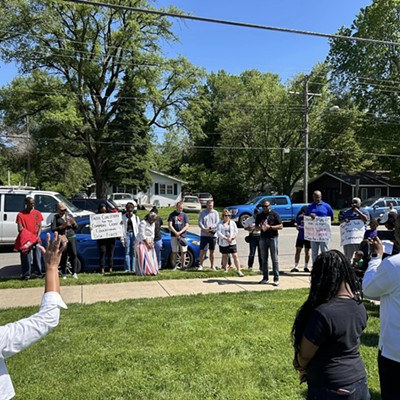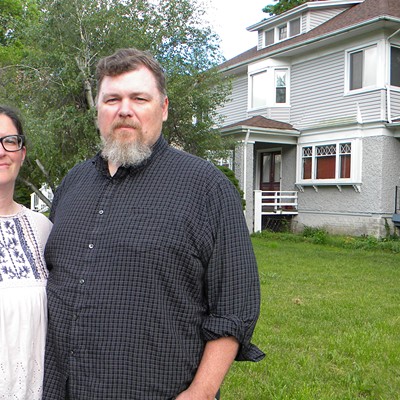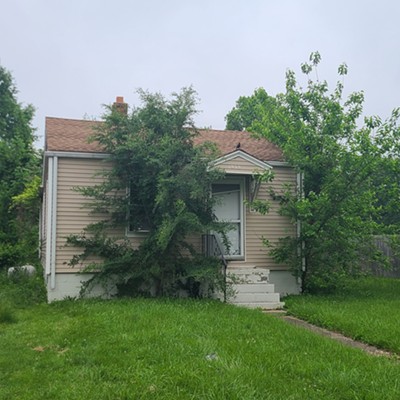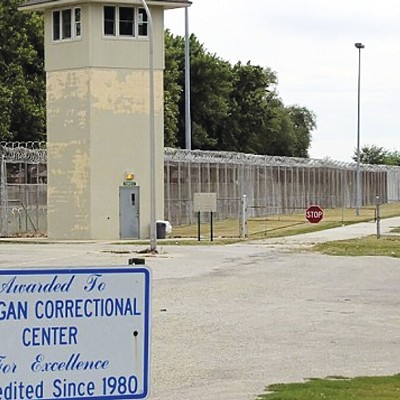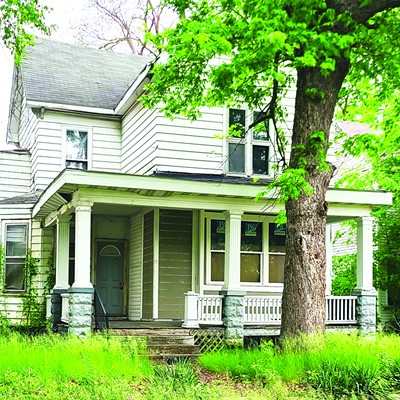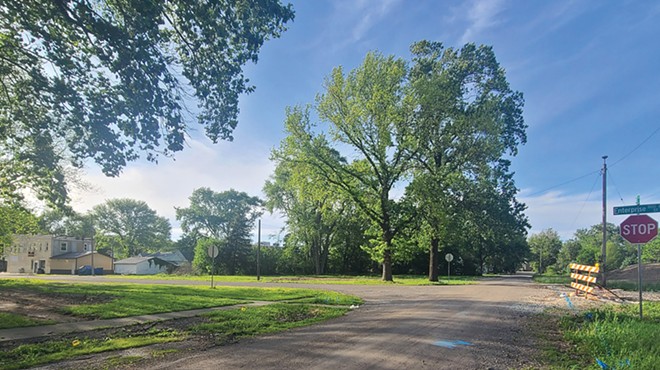
Despite a past pledge to reopen his halfway houses for men being released from prison, Dave Kettelkamp said that he is calling it quits after his venture, House of the Rainbow, was displaced by the high-speed rail project.
Ironically, Kettlelkamp said he is getting out of the lucrative business of housing former Department of Corrections prisoners because the caliber of inmates being released is worse now than when he operated the homes, which closed in 2020.
"The inmates coming out of prison now just have an attitude – they are hard to work with. The quality is a lot less than it used to be," he said.
Parolees were housed in five single-family homes at the corner of North 10th and Enterprise streets, and city officials have said House of the Rainbow operated without proper zoning for a nearly decade before a homicide committed by one of the residents called attention to the homes.
In 2013, Mark A. Brown, 50, a parolee staying at House of the Rainbow, killed 47-year-old Rebecca Cleaton at a home in the 900 block of North Ninth Street. Cleaton, who was homeless at the time, was beaten to death. Brown had cut his ankle monitor off and was arrested in Champaign. He is serving a 27-year prison sentence for the murder.
Kettelkamp then filed a zoning request to bring the properties into compliance. A former resident, Jermaine Davis, gave a speech to the Springfield City Council supporting House of the Rainbow.
"I got out of prison. I learned and I moved on. How many times can we do that, get out of a terrible situation, learn from the situation and really move on? There's not too many times or situations we can do that. Small or big," he told members of the council at a January 2014 meeting.
The City Council rejected the zoning petition, but Kettelkamp's attorney, Tom Immel, filed an appeal and the homes were allowed to continue to operate for the time being.
Six weeks after the council meeting, Davis and another former resident, Sancho Mitchell, were arrested and charged with a double homicide that had occurred while both were residents of House of the Rainbow.
On Dec. 31, 2012, Larry Grice and Andrea Pocklington were killed in Pocklington's home at 924 N. Ninth Street. Police contended that Davis shot Grice in the back of the head and Mitchell stabbed Pocklington, who was pregnant, in the neck and abdomen. Davis is serving a life sentence for the murder and Mitchell is serving 35 years.
Kettlekamp said his decision to call it quits had nothing to do with the three homicides.
"You know things like that happen, no matter where you are," he said of the murders. "Just because they came out of prison, came to my house, don't mean that they were bad persons. They just made a bad choice when they came back to my house. ... They just ain't doing anything with (inmates) in prison other than just letting them be there to do their time and getting them out."
He said it was this lack of rehabilitation – not the violent crimes committed by his past residents – that prompted him to slam the door shut on future halfway-house endeavors.
In 2020, the high-speed rail project displaced the houses operated by the House of the Rainbow.
"It was just a blessing that the railroad took me out," Kettelkamp said. "That's all I could say."
The Department of Corrections was paying Kettelkamp more than $300,000 a year to house the newly released inmates. At the time that the railroad project displaced the homes, Kettelkamp had said he planned to relocate House of the Rainbow to somewhere else in Springfield.
Kettelkamp, who now works as a laborer for Woodside Township, said he has since changed his mind.
"I just got tired of it, man. I got tired of the guys. The guys coming out of prison these days are a whole 'nother generation, man," he said.
John Keller, president of the Pillsbury Mills Neighborhood Association, said he is pleased that the area is rid of the halfway houses.
"Some of (the former inmates) were standoffish and kept to themselves, and a couple of them were actually decent people who had problems with their life and tried to follow the rules. ... I won't condemn everybody that was there, because there were a few people there that tried to be decent," he said.
Nonetheless, Keller said House of the Rainbow was an impediment to redeveloping the neighborhood. He said neighbors found it difficult to sell their houses.
"I don't think anybody would have wanted to sell their house, because I don't believe they would have had too many takers for it," he said.
Scott Reeder, a staff writer for Illinois Times, can be reached at [email protected].



